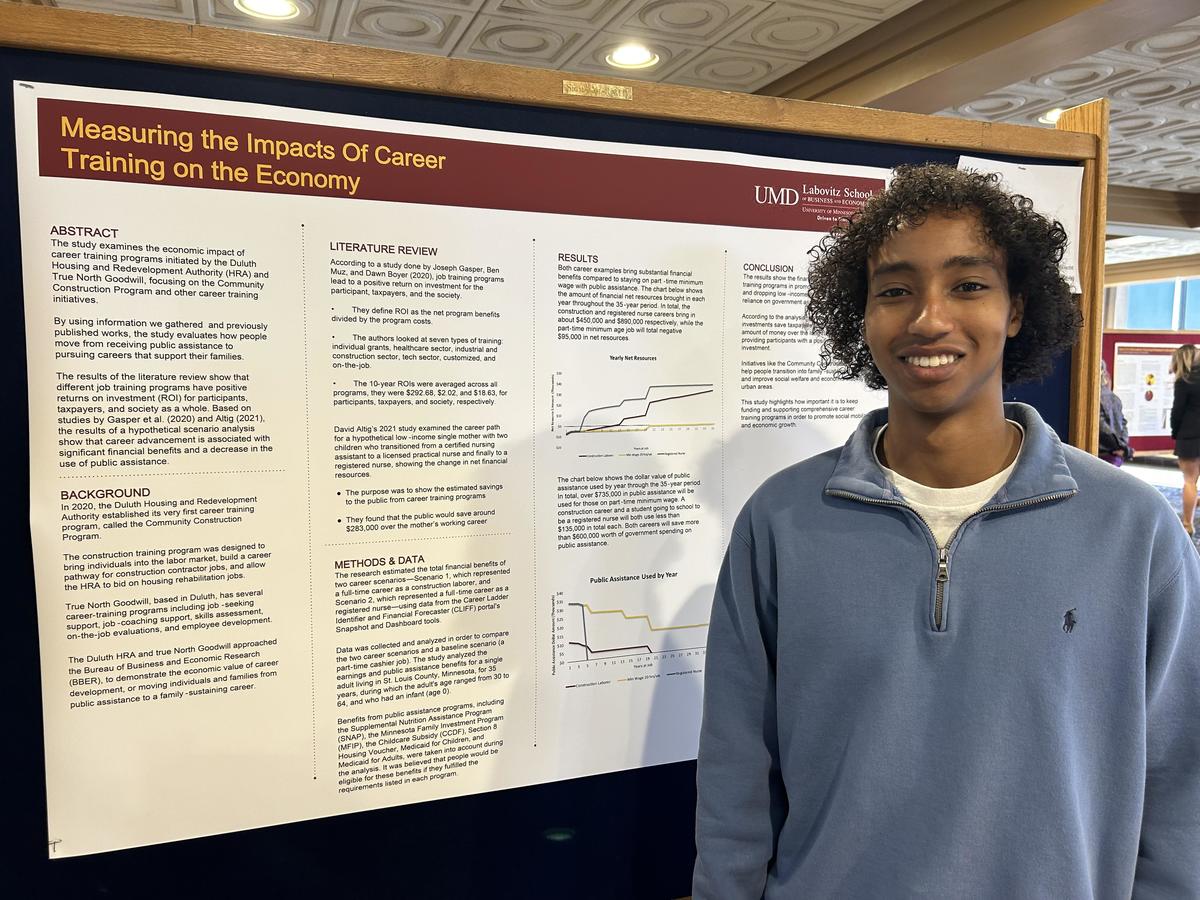Mahad Ahmed and Mitchell Bakken were jointly nominated for their work on the BBER’s recent study, “Measuring the Impacts of Career Training on the Economy,” which examined the financial benefits of career training on individuals and the economy. Avery Wendinger was nominated for his work on a BBER project about wood product manufacturing in Minnesota.
The three students prepared posters for the event, which is open to all students, UMD employees, and the public. Avery and Mahad represented the two projects, speaking with showcase attendees about their research, key findings, and what they learned (Mitchell was not available to participate). We asked our students to share insights and takeaways from their project. Their responses are summarized below.
Measuring the Impacts of Career Training on the Economy
Mahad Ahmed and Mitchell Bakken
What was the most interesting thing you learned throughout your project/research?
Ahmed: The most interesting thing I've learned throughout my research is the effects on taxpayers from someone moving from a part-time job to a full-time career. I found that if someone were to move from a part-time cashier to full time construction laborer the public would save over $600,000 over the course of their career.
Bakken: The financial benefits of moving into a stable career compared to a minimum wage part-time job were much greater than I ever expected. From our study’s findings, the net financial benefits (extra cash after necessary expenses) to the individual over 35 years ranged from $600,000 to almost $1 million. That is an insane increase.
How do you see this project/research helping you in the future?
Ahmed: From this project, I have a better understanding of the allocation of public assistance and the effects it has on taxpayers. This project also helped me present my findings to a general audience.
Bakken: The experience I got crunching numbers in excel will definitely help me in my future. I was also heavily involved in most aspects of this project—data analysis, graphics, and the report. That is all good experience for future projects.
Assessment of Wood Product Manufacturing in Minnesota
Avery Wendinger
What was the most interesting thing you learned throughout your project/research?
I was able to learn a lot about Minnesota's natural resources and forest product industries. Interestingly, Minnesota has a lot of underutilized tree species, such as balsam fir and maple, that could provide a low-cost resource if companies could find ways to utilize them.
How do you see this project/research helping you in the future?
I plan on going to grad school in the next few years for economics, so having previous research experience, especially outside of the classroom, is invaluable. This project also sparked a greater interest in natural resources and forest economics, which is something I might consider as a potential field of study.
